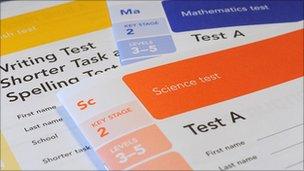By Lucy Caulkett-
Headteachers have been complaining on social media about the marking schemes used in Britain’s primary schools after Sats exam results came back with unfavourable results for some pupils. Some have been livid, complaining that the marking schemes set by Pearson were too harsh.
However, observers from The Eye Of Media who have been studying the questions before today believe they were too easy for pupils their age, and need to be raised to measure up to international standards. The professional assessment of a select team is still being examined by other professionals given the past few years in which they have been known to be particularly tough.
A question on the key stage 2 reading Sats test in which some pupils got no marks for a question about bumblebees led to several complaints over the way the question was marked. The test taken by an estimated 600,000 10- and 11-year-olds in May saw students asked to read a fact sheet about helping bumblebees and answer questions related to it.
The marking scheme instructs a mark to be awarded to pupils who correctly answer a question about the provision of help for a weak bumblebee . Guidelines propose a correct answer stating “give it a sugar and water mix”, worth one mark, but “sugar and water mix” is not acceptable and gets nothing.
Pearson who oversee the marking require human action to be incorporated in the response by 10-11 year old’s, but headteachers feel this is to harsh. In actual fact, the requirement is more than fair because children that age need to know how to write complete answers and sentences.
Similar complaints were made in 2017 over the spelling punctuation and grammar (Spag) test after some pupils received no marks for a correctly placed semicolon because the comma part had been backwards. The criticism again here is harsh because apart from children with known problems of dyslexia, it is important for children to know how to punctuate their sentences correctly. Given the efforts made by The Department Of Education to raise standards, it is vital that primary school examiners keep standards at a reasonable level, and don’t make them to soft to suit moaning parents and teachers.

